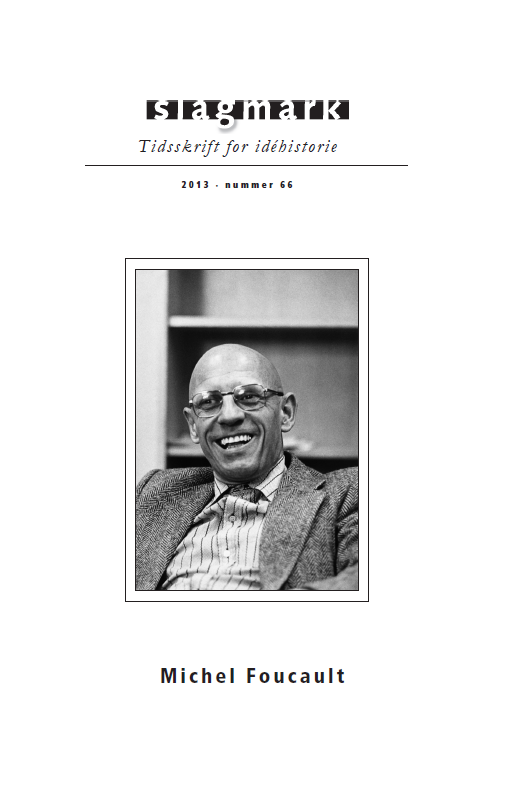Hvad er oplysning?
DOI:
https://doi.org/10.7146/sl.v0i66.104227Keywords:
Michel Foucault, Immanuel Kant, enlightenment, critique, modernityAbstract
Slagmark do not have the copyright to share this article online. However, the article has been created in our archive, and can be ordered by anyone who is registered as a user at a library in Denmark. Delivery in 5 minutes. Click on her:
https://bibliotek.dk/linkme.php?rec.id=870971-tsart%3A35743812
”What is enlightenment” was originally a lecture Foucault gave at the Collège de France on January 5, 1983. It was published for the first time in The Foucault Reader (1984) and subsequently in the French journal Magazine litteraire in May 1984. Immanuel Kant’s question ”What is enlightenment?” was something that interested Foucault deeply in the last years of his life. Supposedly, he also suggested a smaller conference to discuss the question 200 years after Kant for the first time had tried to answer it in 1784 but the conference never materialized. In this article Foucault reflects on the human being and its relationship to itself as a historical being and how Kant’s text about enlightenment is a question of the present. Enlightenment is to Kant the moment when humanity puts its own reason to use without subjecting itself to authority and to Foucault, Kant’s characterization is an outline of the attitude of modernity and modern philosophy as a way of answering the question: what is enlightenment? To Foucault, this becomes a question of enlightenment and modernity as a permanent critique of the present and of our historical era. This philosophical stance represents a certain attitude, an ethos, where the critique of what we are is at the same time a historical analysis of the limits which are imposed on us and an experiment with the possibility of transgressing them.





